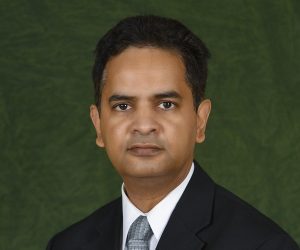UNC Charlotte’s Grid Innovation Earns NSF Engines Finalist Recognition

When the National Science Foundation named UNC Charlotte as a finalist in its Regional Innovation Engines program, it marked a significant milestone for the university’s emergence as a national hub for energy innovation. Central to this success is Grid Ancillary services with Uninterruptible Power Supply (GAUPS) technology, developed by Sukumar Kamalasadan, the Duke Energy Distinguished Professor in Engineering in UNC Charlotte’s William States Lee College of Engineering. GAUPS addresses a critical challenge facing advanced manufacturers, hospitals, and data centers across the Carolinas: costly power quality disruptions.
GAUPS offers a transformative solution by ensuring uninterrupted, high-quality power for sensitive facilities while simultaneously delivering ancillary services back to the grid, improving overall reliability and resiliency. At a time when renewable energy, electric vehicles, and data centers are straining the distribution grid, GAUPS represents exactly the kind of innovation the U.S. energy system needs.
NCInnovation’s grant proved crucial in bridging the “valley of death” between lab research and commercial viability. The funding enabled Kamalasadan’s team to advance GAUPS from Technology Readiness Level (TRL) 4/5 to TRL 6, moving into rigorous real-world testing with a major utility partner. NCInnovation also guided the commercialization process, helping establish the startup Scenergy, connecting the team with critical entrepreneurial resources.
If Charlotte wins an NSF Engine, the region could see up to $160 million in federal investment, with potential for billions more in private capital. “Being named an NSF Engines finalist is a tremendous recognition of UNC Charlotte’s leadership in tackling one of our region’s most pressing challenges, modernizing the electric grid,” said John Daniels, Vice Chancellor for Research and Principal Investigator on the Engines proposal. “It affirms that our University is not only conducting world-class research but also shaping real-world solutions that matter to communities, businesses and national security.”